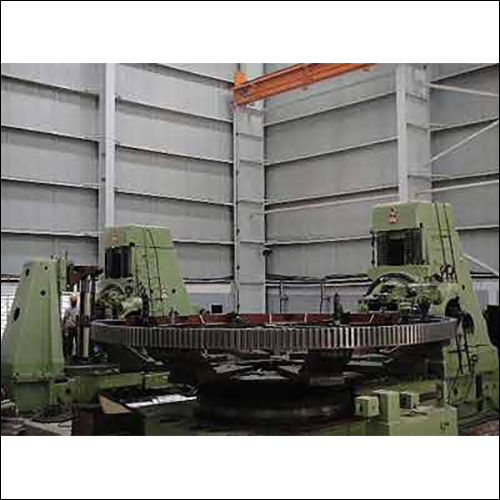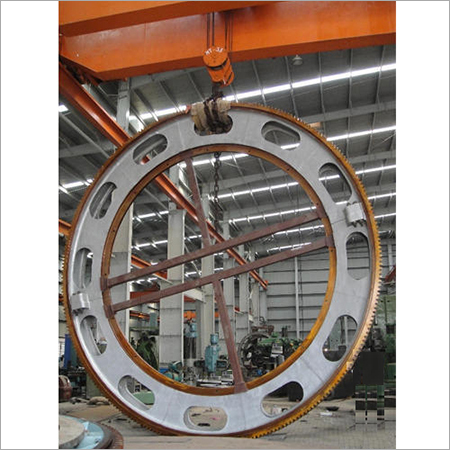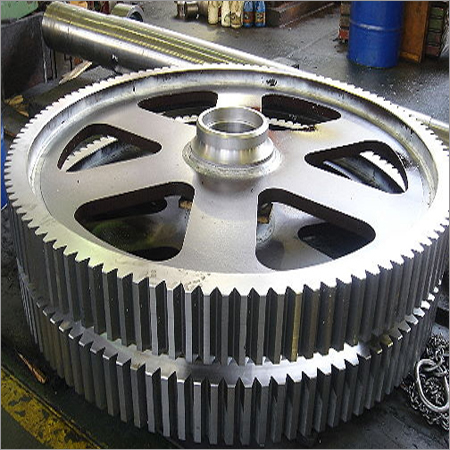ರಿà²à²à³ à²à³à²°à³à²¸à³
Price 100000 INR/ ತುಂಡು
MOQ : 1 ತುಂಡು
ರಿà²à²à³ à²à³à²°à³à²¸à³ Specification
- ನಿಯಂತ್ರಣ ವ್ಯವಸ್ಥೆ
- CNC Control System
- ಮೇಲ್ಮೈ ಚಿಕಿತ್ಸೆ
- Polished
- ಯಂತ್ರ ವಿಧ
- Gear Hobbing Machine / CNC Lathe
- ವೈಶಿಷ್ಟ್ಯಗಳು
- High Strength, Wear Resistance, Precision Tooth Profile, Durable
- ಪವರ್ ಮೂಲ
- Electric
- ಆಟೊಮೇಷನ್ ಗ್ರೇಡ್
- Automatic
- ಬಳಕೆ
- transfer torque from starter motor pinion to flywheel for engine rotation
- ವಿಧ
- Ring Gears
- ವಸ್ತು
- Steel
- ಗಾತ್ರ
- 100 to 2000mm
- ತೂಕ
- ಕಿಲೋಗ್ರಾಂಗಳಷ್ಟು (ಕೆಜಿ)
- ಬಣ್ಣ
- Gray
- ಅಗಲ
- ಮಿಲಿಮೀಟರ್ (ಮಿಮೀ)
- ಅಪ್ಲಿಕೇಶನ್
- Heavy duty industries
- ವೋಲ್ಟೇಜ್
- ವೋಲ್ಟ್ (ವಿ)
ರಿà²à²à³ à²à³à²°à³à²¸à³ Trade Information
- Minimum Order Quantity
- 1 ತುಂಡು
- ಪೂರೈಕೆ ಸಾಮರ್ಥ್ಯ
- ತಿಂಗಳಿಗೆ
- ವಿತರಣಾ ಸಮಯ
- ದಿನಗಳು
About ರಿà²à²à³ à²à³à²°à³à²¸à³
Also called starter ring, ring gear comprises medium carbon steel ring with teeth installed on periphery of flywheel of combustion engine in applications in automotive sector. Smaller gear of starter motor drives the teeth. Its main use is to transfer torque from starter motor pinion to flywheel for engine rotation.
Features of Ring Gears
- Starter ring gear features precisely constructed support
- Undergoes several heat-treatment processes such as tempering, normalizing and others to achieve precision finish
- Teeth of starter ring hardened to improve its strength as well as wear resistance
- Modern CAD support making use of software such as AUTOCAD, SOLID WORKS to ensure precision construction standards
- Tools used for interference checks and dimensional accuracy testing
- Load and stress analysis on gears making use of finite element analysis
Applications of Ring Gears
Ring gears are used in automotive applications such as:
- Stationary engines
- Cars
- Tractors
- Power generators
- Tillers
- Trucks
- Buses
- Marine applications
Precision Engineering for Heavy Duty
Our ring gears boast a robust build, crafted from premium steel to withstand demanding industrial operations. With exceptional strength and optimum wear resistance, these gears are suited for heavy-duty machinery in manufacturing and processing plants. The precision tooth profile ensures reliable transmission and longevity with minimal maintenance requirements.
Advanced Manufacturing and Polished Finish
Utilizing gear hobbing machines and CNC lathes, each ring gear is manufactured to exacting standards under fully automatic CNC control systems. Polished surface treatment not only grants superior aesthetics but also increases the gears resistance to abrasion, extending its service life and maintaining high operational efficiency in tough environments.
FAQs of Ring Gears:
Q: How are these industrial ring gears typically used in heavy-duty industries?
A: Ring gears are vital components in heavy-duty machinery, facilitating smooth transmission of power. They are commonly installed in equipment such as cranes, rolling mills, and industrial gearboxes, where reliable torque and precision are essential for continuous operation.Q: What materials and surface treatments are employed to enhance the durability of these ring gears?
A: Each ring gear is produced using high-strength steel, then treated with a polished surface finish to boost wear resistance and durability. This combination ensures the gears maintain performance integrity under intense loads and frequent operation.Q: When should I consider replacing or upgrading my current ring gears for industrial machinery?
A: It is advisable to replace ring gears when signs of wear such as tooth misalignment, excessive vibration, or loss of precision become evident. Upgrading to current models with improved strength and polished surfaces can also enhance machinery reliability and efficiency.Q: Where are these ring gears manufactured and exported from?
A: These ring gears are manufactured, supplied, and exported from India, where advanced CNC machines and gear hobbing technology ensure international quality standards and reliable product availability for global customers.Q: What is the manufacturing process for achieving precision tooth profiles in these ring gears?
A: The ring gears are precisely machined using gear hobbing machines and CNC lathes, guided by CNC control systems. This process guarantees uniform tooth geometry, promoting accurate meshing and efficient power transmission in complex industrial setups.Q: What benefits do these ring gears offer for heavy-duty industrial applications?
A: Key benefits include high strength, exceptional wear resistance, and the ability to maintain precision tooth profiles under demanding conditions. Their durable steel construction and polished treatment result in reduced maintenance needs and prolonged service life.Q: How does the automation feature enhance the functionality of these ring gears?
A: With an automatic CNC control system, these ring gears offer increased production efficiency, consistent quality, and minimized human error. This automation makes them suitable for integration into modern industrial machinery requiring reliable and scalable gear solutions.
Tell us about your requirement

Price: Â
Quantity
Select Unit
- 50
- 100
- 200
- 250
- 500
- 1000+
Additional detail
ಮೊಬೈಲ್ number
Email
ಇನ್ನಷ್ಟು Products in Gears, Pinions & Shafts Category
ಮಿಲ್ ಗರ್ತ್ ಗೇರ್ಸ್
ಅಪ್ಲಿಕೇಶನ್ : Paper Industries
ಅಳತೆಯ ಘಟಕ : ತುಂಡು/ತುಣುಕುಗಳು
ನಿಯಂತ್ರಣ ವ್ಯವಸ್ಥೆ : CNC Control System
ಪರಿಕರಗಳ ಪ್ರಕಾರ : Mounting Bolts, Bearings, Couplings, Retaining Rings
ಕನಿಷ್ಠ ಆದೇಶ ಪ್ರಮಾಣ : 1
ಉತ್ಪನ್ನ ಪ್ರಕಾರ : Mill Girth Gears
ಬುಲ್ ಗೇರ್ಸ್
ಅಪ್ಲಿಕೇಶನ್ : Widely used in mining industry, steel plants, power plants, paper plants and fertilizer plants for different applications
ಅಳತೆಯ ಘಟಕ : ತುಂಡು/ತುಂಡುs
ನಿಯಂತ್ರಣ ವ್ಯವಸ್ಥೆ : CNC Control System
ಪರಿಕರಗಳ ಪ್ರಕಾರ : Shafts, Bearings, Retaining Rings
ಕನಿಷ್ಠ ಆದೇಶ ಪ್ರಮಾಣ : 1
ಉತ್ಪನ್ನ ಪ್ರಕಾರ : Bull Gears

 ವಿಚಾರಣೆಯನ್ನು ಕಳುಹಿಸಿ
ವಿಚಾರಣೆಯನ್ನು ಕಳುಹಿಸಿ




 English
English Spanish
Spanish French
French German
German Italian
Italian Chinese (Simplified)
Chinese (Simplified) Japanese
Japanese Korean
Korean Arabic
Arabic Portuguese
Portuguese